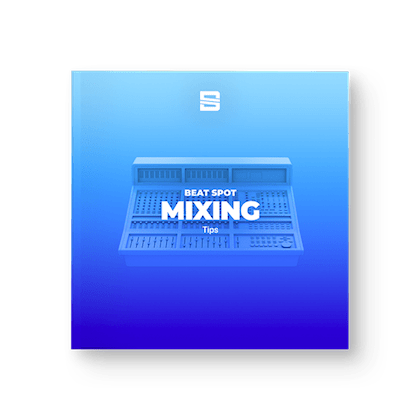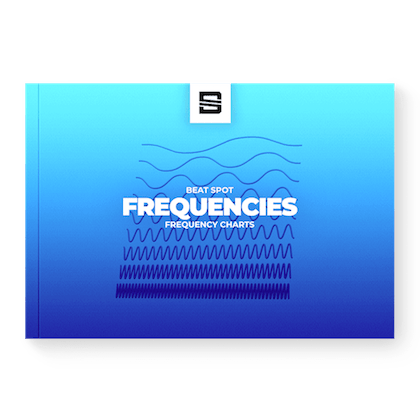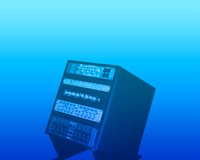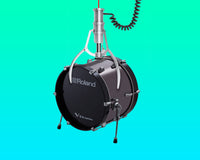Table of Contents
- What is piracy?
- How does piracy work?
- Resources
- How do cracks work?
- Does cracking affect software stability?
- Is the software easy to crack?
- Why does piracy happen?
- Problems
- One-Time purchase vs. Rent-to-own
- Software vs. info products
- High Ticket vs. Low Ticket products
- Limited Time products vs. Non-Limited Time products
- Parts Involved
- Solutions
- Side Effects
What is piracy?
Piracy refers to the unauthorized duplication of copyrighted content that is then sold at lower prices or even given out for free. The evolution of technology and the ease of access to it has made this phenomenon more and more diffused.
As it used to be for vinyl in the second half of the 20th century, for CDs in the 2000s, now the same phenomenon happens for a myriad of digital products, VSTs, libraries, and educational sources in whatever creative industry, music included.
Piracy, in practice, copies the products without stealing them, so the sellers don’t earn as much as they should, but they aren’t losing money as well.
The only money being lost by the sellers is for all the expenses made for the development of the product, which is still something that can hurt a business if that product doesn’t allow at least to break even.
Piracy is wrong, but not entirely bad. We wrote this article to better describe all the aspects of this phenomenon.
How does piracy work?
There are several websites with different types of downloads. Most of them are mainly fueled by “teams”, the most renowned one is TeamAIR, uploading the content on servers such as uploaded.net, rapidgator, xenupload, and many others where you can download the content directly (often zipped into several parts, probably for bandwidth reasons).
By the number of ads on these websites, we do believe that these teams are financed by advertisers placing their ads on such websites.
Other websites, instead, offer torrent files and magnet links where you basically can get the file as it’s being seeded by other people who have it.
Finally, there are a few blogs where you can subscribe, and these are the ones where you can get the most exclusive content around.
Resources
We don’t want to promote piracy at all, but for the sake of completeness of information, we will list some of the most popular websites with leaked content to better describe this phenomenon.
If you ever think of downloading any content from these websites, we highly invite you to reward the creator by purchasing a legit copy, especially if you’re profiting from it.
Websites
- Audioz
- Magesy
- Mac-torrent-download
- freshstuff
How do cracks work?
This part is mainly related to software since the video, audio, and PDF content are easily leakable.
The software usually comes with a verification application that requires a code or a licensing file. This process heavily varies depending on the type of protection the software has, and the workaround “pirates” find out to make it accessible to everyone.
Sometimes, it can be an easy process for most people. Sometimes, it requires a deep knowledge of your own OS, and it can also lead to harmful tweaks for your computers.
Does cracking affect software stability?
Some say it does; others say it doesn’t. Probably, this is up to the pirates’ skills too.
Is the software easy to crack?
Personally, we don’t know as we don’t have the technical skills and knowledge. By seeing the huge amount of DAWs and plugins cracked around the web, we think it’s easy or that, at least, most use a common structure that makes it easy for seasoned pirates to unlock them.
Some software houses have been recently introducing more sophisticated systems to license your products. One example is the iLok system, which makes it really tricky to access software protected by this system.
Why does piracy happen?
There are a few factors around this phenomenon which are:
- People don’t have enough or any money.
- People don’t have a credit card to pay online.
- People don’t want to pay.
- People are not sure about investing in such a career.
- People just want to “play” and not commit to anything serious.
Problems
Each type of product has some problems due to its nature or the way it’s sold and marketed.
One-Time purchase vs. Rent-to-own
One-Time purchases have the pro of becoming you forever once you get them, but these usually come with a higher price which most of the time makes the customer see the product as quite prohibitive or as a jump into the void.
Rent-to-own is a great alternative recently offered by Splice and a few other developers such as Slate Digital. It can be on a monthly or yearly basis. The great thing with this method is that each product costs very little money, but you still have to multiply this expense by the number of plugins you need and by the number of months you’re going to use it.
However, you can stop the subscription whenever you want and re-enable it later if you need it again, especially if you’re going to pay it monthly.
While it’s more accessible at the beginning, in the long run, it might cost you more than a One-Time purchase. It’s also true that you don’t have to stick to a fixed version, but you can rent the latest one as soon as it releases, especially if you’re using plugins such as iZotope Ozone that doesn’t have major updates but basically a whole new version is released almost every year.

Software vs. info products
Softwares can have some sort of protection and often have that part of the urgency to get the latest version, so this doesn’t make them safe from piracy but still leaves room for developers to profit from newer and newer versions as soon as they’re released.
Softwares also are the tools you might need to make your creations, but very few of them are strictly necessary, especially when you’re a beginner (when stock processors usually are enough for the things you need, except synths and weird modulators).
Cracked software isn’t very easy to share mainly because there are two barriers: the file size of the installers, which makes it prohibitive to send, and the OS, in fact, most cracked software is specific to a certain OS, whether it’s Windows, macOS or else.
Educational products are the easiest to leak, except video courses. The thing that makes creators of educational products more vulnerable is the fact that by the moment someone has absorbed the knowledge from a leaked product, they rarely have the need to use that content in the future for the simple reason that they already learned the useful notions from it.
High Ticket vs. Low Ticket products
High Ticket products are way more demanded than low ticket ones for the simple reason that they are accessible to fewer people, but this also means that the leaked version may take more time to show up on the various websites.
Low-ticket products instead generally sell more, but the chances of seeing it leaked as soon as it’s released are way higher.
Limited Time products vs. Non-Limited Time products
During the last few years, the marketing technique of drops has been implemented in this field too. One great example of this is Cymatics, which has released a handful of products in a limited number of copies.
The good thing about this is the sense of urgency that helps the seller profit from an expected number of copies; the bad thing is that its profit is limited.
However, this tactic leads to an increased request which translates into a high chance of being leaked faster.
Other products instead, which are available as long as they aren’t discontinued, have the pro for the seller to make a more constant profit, but the longer it’s out, the more pirates have time to purchase a copy and make it accessible to everyone. The fact it’s not limited makes it less appealing to people who want to take it, though.
Parts Involved
Professionals vs. Amateurs
Professionals should always pay for the software they’re using. Paying for the tools you’re using is key to fuel the developers and creators to make them work on better and better products.
Amateurs should pay as well but considering that the learning curve isn’t the same for everyone, they might need some more time to make music production something they can really trust and rely on. The fact that most software is available to beginners still leaves a door open for developers to convert them into loyal customers in the future.
Some people don’t even have the chance to get started without cracked software, and this would make art elitist, which isn’t any good for the whole music community. We can’t even imagine how music would be nowadays if many people didn’t have this chance.
Big and small companies
Theoretically, both big and small companies should be rewarded for their efforts.
However, big companies deserve more than small ones because they generally have more budget to develop better software and are more trustworthy.
Small companies instead definitely need more to be rewarded for their efforts because they don’t have big budgets to keep the machine rolling and also because they have fewer tools at their disposal to fight piracy.
Solutions
How to protect (DMCA)
Once a product is leaked, there are tools such as DMCA notices and takedowns to remove it from unauthorized websites. Notice and takedown is a process operated by online hosts in response to court orders or allegations that content is illegal. Content is removed by the host following notice.

Try before buying
Trials are a great way to make people evaluate whether a software fits their needs or not.
The biggest problem with it, though, is the trial time.
Two weeks might be enough or not, depending on the person utilizing it. Amateurs often need more time because they can’t afford it blindly and also have fewer skills to test it fairly.
Some trials have the caveat of not working when rendering out a track, or they output a sort of white noise as a watermark which often makes the software unusable.
Side Effects
Brand awareness
Piracy is something many people benefit from, and this makes certain websites a great spotlight for creators and developers.
In fact, a small seller can get a huge brand awareness at the cost of fewer copies sold instead of investing in an advertisement. I actually know an upcoming sample label that had a spike on their socials every time one of their packs resulted in being leaked somewhere!
The nice thing with having digital products leaked is that they aren’t earning, but they also aren’t losing money like other sellers of physical products would if someone robbed them.
How creative fields improved
With the advent of DAWs and VSTs, music production has become more and more popular. This led to more developers working in this market, bringing in new products.
The presence of pirates, then, made all of this software available to more people, especially the youngest ones, allowing them to cultivate their passion for music and develop their skills sooner, which resulted in them becoming good at it at a faster pace than previous generations.
More people making music meant more music to listen to, making more people willing to make their own music, and this resulted in a snowball effect, especially in the 2010s.
Piracy allowed for a ton of successful producers to start out and start memorable waves.
The access to leaked software also resulted in more creators making tutorials on YouTube, helping with spreading knowledge that helped the new generations shortening their learning curve. Piracy, along with a more software-oriented setup, actually democratized music production, not making it a thing for rich people anymore as it used to be in the 20th century.
Pros & Cons
Like most things, piracy has both pros and cons. Let’s see some of them.
Pros
You get whatever you want and need
Piracy nowadays reaches most products in a matter of days. Some of the most known websites have a request section where pirates get to know about new products and what people actually want.
It’s (almost) free
Most websites allow for downloading everything for free. The only limit is set by the servers where content is hosted. Most of them allow for something like two downloads per day with limited bandwidth, and you can pay a daily/monthly/yearly subscription to get unlimited access to whatever files are uploaded there.
It can skyrocket your workflow.
Sometimes what’s keeping you from becoming actually good at something can be a preset bank, a sample pack, or a specific VST or DAW.
It “lets you try.”
If you are still willing to purchase something, but you want to dive more in-depth before committing to the purchase, you can basically get what you want for free and later decide to buy a legit copy once you think it fits your needs.
Cons
Upgrading
This problem comes up only with software. You basically just can’t upgrade cracked software for free as it requires having an account and a serial number for your copy. The only ways to upgrade cracked software are buying a legit copy or pirating the newer version.
Reinstalling
You must store all your installers somewhere. You don’t have access to them online as you’d have with an account with legit licenses. Also, software developers constantly work to make their software working with newer versions of your OS. So, if you have a pirated copy and you’re upgrading your computer, the chances are that it might not work anymore, so you’d have to find a new working installer.
Customer Service
Of course, developers won’t help you if you haven’t purchased a legit copy lol.
Lawsuits
In most countries, piracy is illegal, especially if you’re using the content/software for profit. Some of them are particularly aggressive against it.
Conclusion
Piracy is a complex phenomenon and, while it’s a thing we don’t promote nor support, we have to recognize that it impacted the world for the better and sped up things considerably and it made music production accessible to a number of people that 20 years ago wasn’t even imaginable.
The whole awareness and charm of music production have probably got to you mostly thanks to piracy that made this art widely spread.
Looking for new plugins?
If you want to discover some of the best plugins around, give a look at our free Plugins PDF here









